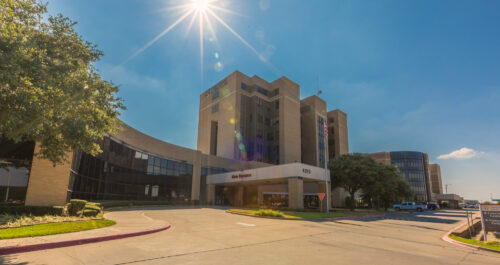
Heart, Vascular & Pulmonary Care
Quick Links
Related Services
Contact Information
Cardiac Reabilitation Center
About
A healthy heart and lungs are important to the life you want to live. Hunt Regional Healthcare's skilled team provides advanced and personalized care for heart, vascular, and respiratory conditions. With state-of-the-art facilities and a compassionate approach, we are dedicated to improving your cardiovascular and respiratory health.
Services
Discover comprehensive Heart, Vascular, and Pulmonary Services at Hunt Regional Healthcare. Our expert team of medical professionals is committed to providing exceptional care for your cardiovascular and respiratory needs.
A cardiac CT scan for coronary calcium is a non-invasive way of identifying the location and extent of calcified plaque in the coronary arteries. Because calcium is a marker of coronary artery disease (CAD), the amount of calcium detected on a cardiac CT scan is a convenient way of evaluating whether you may be at increased risk for heart attack.
At Hunt Regional Healthcare, our dedicated cardiopulmonary team is committed to providing specialized care for your lung conditions. With state-of-the-art therapy options, we tailor pulmonary treatments to meet your specific needs, ensuring the best possible outcomes for patients of all kinds.
Frequently Asked Questions
Are you or a loved one interested in learning more about cardiac health? Whether you have general questions about heart health or questions specific to Hunt Regional’s cardiology services, our FAQ section will provide you with the answers you’re looking for.
The cardiac rehab programs offered at Hunt Regional can benefit patients who have any of the following symptoms or conditions:
- Acute myocardial infarction
- Coronary-prone individuals
- Valvular heart disease
- Myocardial disease with a history of congestive heart failure
- Atherosclerotic heart disease
- Angina pectoris (chest pain)
- An abnormal stress test
- Angioplasty or atherectomy
- Pacemaker or AICD
- Coronary artery bypass surgery
- Heart transplant
Your Content Goes Here
At Hunt Regional Healthcare, we offer cardiac rehabilitation programs designed to fit your specific needs. Our outpatient cardiac rehabilitation program includes physician-supervised exercise sessions for up to 12 weeks. However, because our programs are designed to help restore and maintain your well-being, we offer a follow-up program to maintain your cardiovascular fitness following the 12-week program.
Stress tests are designed to determine your cardiac health, diagnosing if there is any significant blockage in your coronary arteries. During an EKG stress test, you are attached to an electrocardiogram machine with electrodes and asked to walk on a treadmill until you reach a pre-determined heart rate while a physician monitors for EKG changes.
If you cannot walk very well or long enough to perform a traditional stress test, our physicians at Hunt Regional can perform a Dobutamine Stress EKG. During this procedure, Dobutamine is infused through a catheter to increase your heart rate and the strength of your heart’s contractions, mimicking the heart’s behavior during exercise while a physician monitors your EKG.
Patient comfort is of the utmost importance to us at Hunt Regional, and our physicians ensure that all cardiac testing is done in the least invasive way possible. Most of the cardiac tests we offer are completely pain free and simply require that electrodes are attached to your skin to allow for imaging of the heart. Some of our testing does require drawing blood and in some instances the patient will be put under conscious sedation to minimize discomfort.
Some risk factors for cardiopulmonary problems are hereditary and thus out of your control. Children of parents with heart disease are more likely to develop cardiac issues themselves, while certain races are predisposed to heart disease. African Americans, Mexican Americans, American Indians and native Hawaiians are all at higher risk for heart disease than Caucasians. Men are also at a higher risk of cardiopulmonary problems than women, and those over 65 are much more likely to experience cardiac problems.
Stress is an unavoidable part of daily life, but excessive stress and how you manage stress can have an impact on your cardiac health. Stress can influence blood pressure and cholesterol levels, which increase the risk of heart disease. Additionally, some individuals turn to negative habits such as overeating, smoking cigarettes or excessive alcohol consumption to cope with excessive stress, and these behaviors greatly increase the risk of heart disease.
What are some factors that put me at risk for cardiac problems?
There are a variety of factors that can put you at risk for cardiac problems, some of which can be changed. These risk factors include:
- Smoking tobacco
- High cholesterol
- High blood pressure
- Physical inactivity
- Excess body fat
- Diabetes
The presence of more than one of these factors greatly increases your risk for cardiac problems. Additionally, stress, alcohol consumption and diet are other controllable factors that can raise your chances of experiencing heart-related issues.
A CHF Telemanagement Program is designed to provide daily monitoring of vital signs for patients with congestive heart failure (CHF). In Hunt Regional’s’ CHF Telemanagement Program, we send you scales and instruction on calling our dedicated CHF line daily to report your weight and other clinical markers. In some cases, patients will be given equipment to monitor their blood pressure, heart rate and blood oxygen level as well. Our CHF telephone line is monitored daily by licensed professionals who will return your call if your condition warrants. To learn more, please visit our CHF Telemanagement Program page.

